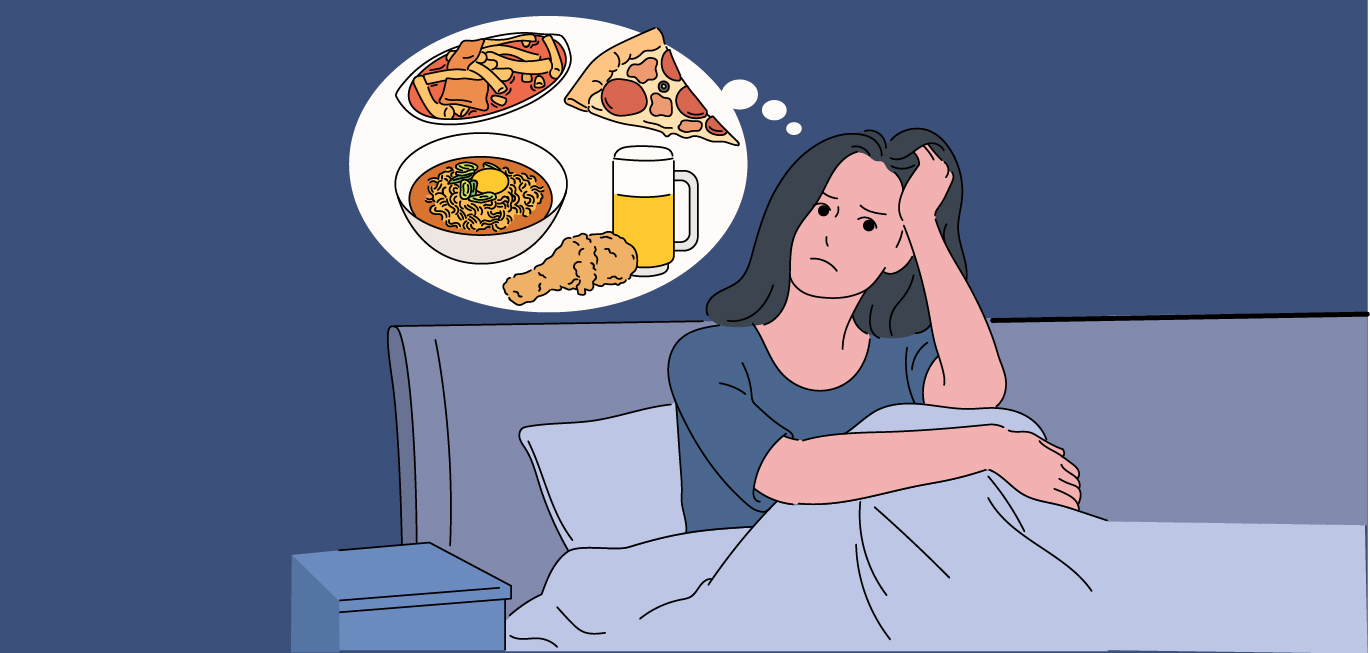
Eating is a fundamental aspect of our life. Yet our relationship with food is often far more complex than just its sustenance of our body.
From nurturing us and fuelling our daily mental and physical deeds, to being a part of shared moments, be it to celebrate in joy or to grieve in loss, food has a comforting and emotional place in our lives.
When we find ourselves in challenging times, are feeling stressed, bored, anxious, sad, lonely, or experience a combination of all these emotions, food can become a ready, unconscious source of comfort.
Shraddha Dhar, 28, a learning and organisation development consultant from Bengaluru, speaks about her experience of dealing with a very difficult work environment. “In the past few months, feelings of being hurt, sad, low, not feeling good about myself, feeling cheated and betrayed – all these worked to increase my intake of food.”
What is emotional eating that Dhar resorted to and how can we differentiate it from physical hunger? Happiest Health looks into the complexities of emotional eating, its signs, triggers and strategies for managing it.
The science of stress eating
Eating in response to stress is something many of us may have done. According to the American Psychological Association (APA), “Thirty-eight per cent of adults say they have overeaten or eaten unhealthy foods because of stress. Half of these adults (49 per cent) report engaging in these behaviours weekly or more.”
Research shows that not only taste, but even the smell, sight, texture, or sound of food releases the `happiness’ hormone, dopamine, in our brain.
According to a 2014 study published by the APA, many adults reported engaging in unhealthy eating behaviours as a result of stress. The study showed that 27 per cent of adults eat to manage stress.
Effects of emotional eating
Chronic stress may often be accompanied by other difficult emotions such as anxiety, depression, uneasiness, anger, apathy, and alienation. (Torres and Nowson, 2007)
A 2022 study on emotional eating states that the release of the stress hormone cortisol may trigger hunger pangs. And eating plays a role in reducing the tension in stressful situations.
A 2021 study on emotional eating amid the COVID-19 pandemic demonstrates that emotional eating is strongly tied to psychological distress. Moreover, emotional eating is connected to energy-dense foods such as those containing high amounts of fats or sugar.
Physical vs emotional hunger

- Physical hunger is often gradual and is felt after a healthy and predictable interval. It can be satisfied by eating healthy or home-cooked food.
- Emotional hunger arises as a means to comfort oneself. It often arises suddenly, intensely and induces cravings specifically for salty, fatty, or sweet foods.
Eating as a coping mechanism
An emotional eating theory suggests that our negative emotions may be inducing us to eat because food has the capability to reduce the intensity of those emotions.
This sheds light on how the root cause of our intense sudden cravings is not actually hunger; it is in fact our body and mind trying to cope with emotions which seem too overwhelming to deal with.
Feeling of control
Mannya Chandy, a 29-year-old counselling psychologist based in Mangaluru, earlier struggled with emotional eating. Speaking from her personal and professional wisdom, she says emotional eating gives us a sense of control in our lives when certain things or situations are making us feel helpless.
She says, “We can’t control difficult emotions or situations. In such a situation, ordering [or making] food impulsively gives us a sense of control which may be lacking in other aspects of our life.”
Relief and guilt
Maansi Menon, an 18-year-old from Bengaluru, echoes her idea. “When I am managing academics, [handling other areas like] sport and extra-curricular activities becomes too overwhelming, and I feel I’m losing control over my life. [At such times] food helps me to feel being in control. That’s when I end up ordering too much food and binge-eating.”
Emotional eating provides temporary relief and gratification but is immediately followed by guilt and regret. Thus, difficult emotions may make us overeat or binge eat, but they are inevitably giving rise to complex emotions which may perpetuate the cycle.
Nailing the triggers
Monika Mande, 30, a counsellor from Pune, shares her experience of dealing with clients having eating related issues. She stresses the importance of not blaming ourselves.
She says, “There are usually a lot of emotional layers involved in stress eating. It is important to examine our triggers and understand the root cause of our negative emotions. Adopting alternative and healthy coping mechanisms is the next step.”
Is it real hunger?
Inability to distinguish between physical and emotional hunger is one of the reasons behind emotional eating. Mande suggests, “The next time a sudden and intense craving creeps up, ask yourself – `Am I really hungry?’ or `Am I feeling something that is making me crave food in order to cope?’ Then give yourself five minutes to answer this question to yourself.”
Making this distinction and delaying the gratification may help in identifying whether our body is asking for food, or our mind is.
Meals should be planned
According to Dr Subhasree Ray, nutrition and wellness expert, planning meals can help in satisfying both emotional and physical hunger by providing discipline and structure to eating habits.
She says it can also help in:
- Making healthy choices and avoiding impulse eating
- Being mindful of eating habits by considering portion size, nutrients, and the time of the day
- Reducing the stress and anxiety associated with deciding what to eat
- Creating a sense of calmness and stability around eating
Experts also advise other options of reining in impulses and meeting the eating stress head on:
Keep a food diary: Dr Ray suggests, “Write down what you eat, when, and how you feel before and after eating. This can identify triggers and patterns of emotional eating.”
Reduce food availability: Emotional eating is driven by a strong urge. It is easy to give in to this impulse if there is a lot of food stocked up around us.
Psychologist Mannya Chandy speaks of her own experience: “Personally what helped was that I stopped stocking up on chips and other snacks around me. So, I wasn’t snacking throughout the day.”
Assess the consequences: Shraddha Dhar says assessing the consequences of emotional eating on her life helped her to cope with the problem “Once I realised the kind of physical, emotional, and financial toll it was taking on me, I was motivated to take steps to be mindful about my eating habits.”


















2 Responses
Very insightful
Good tips